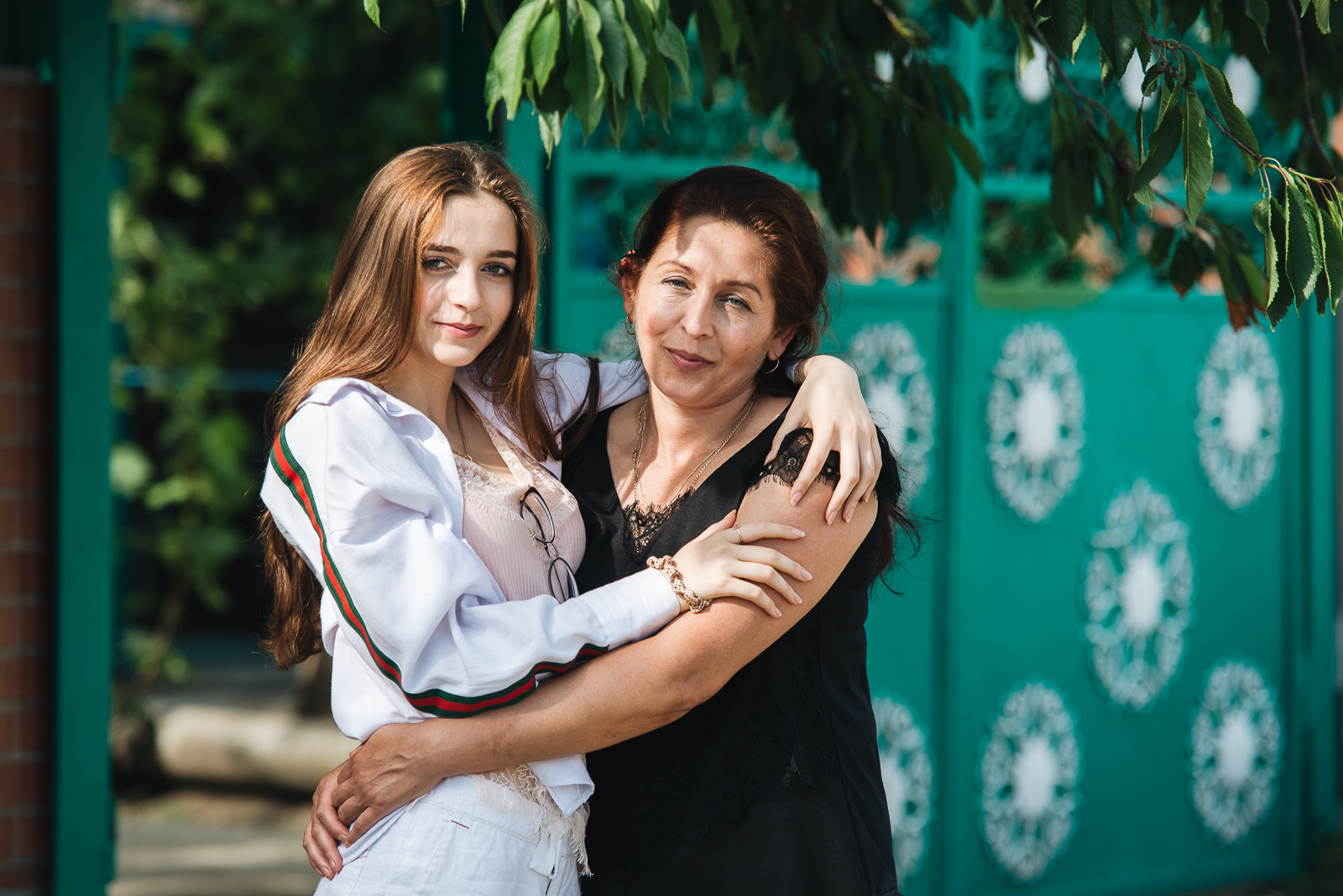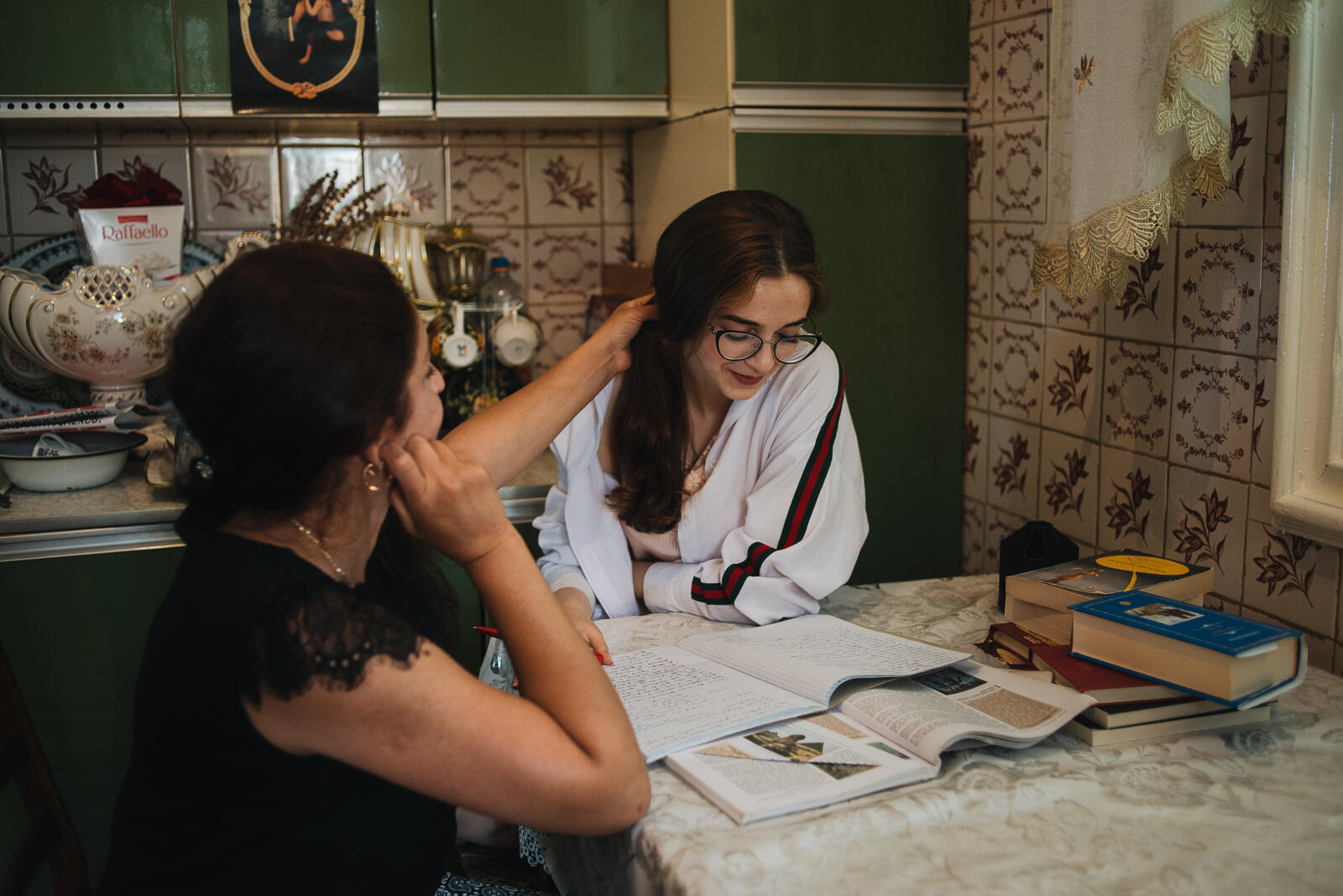International Roma Day - 8 April
Iana Duminică from Chetrosu village, Drochia, is one of her family's champions in studies. After successfully graduating from gymnasium, she was admitted to high school. Iana's mother, Ada, graduated only eight classes, and her grandmother, only three. On International Roma Day, UNFPA Moldova told their story.
Arranged marriages, without right of refusal
When she was her daughter's age, Ada Duminică dreamed of being a nurse. After high school, she immediately submitted the documents to the Medical College from Bălți, but she did not pass the competition. She returned home to her parents but did not go to school, remaining to help with the household and the younger siblings' care. She was only 17 years old when she got married. Her parents and the groom arranged the marriage. She almost didn't see her future husband until the wedding day. "This was the custom then, for the Roma girls. I didn't go out to entertainments, to the disco, anywhere. At the wedding, no one asked the bride if she agreed or not ", says Ada.
The marriage fell apart as quickly as it was planned - it lasted only half a year. The years after the divorce were the only ones in which the woman managed to invest in her professional development - she mastered the tailor's profession.
The second husband, whom she met through friends, she remembers reluctantly - family life was often spiced up with quarrels and violent fights. She decided to end her marriage when she realized that violence marked her and her child.
"I decided to leave and raise my child alone. I also encourage other women not to be patient, not to stay with their husbands if they are beaten, humiliated. I'm sure you can handle it on your own. When you are hit, you lose your health, and you can even lose your life ", she says.
According to a UNFPA report, early marriage is currently illegal and declining in Eastern Europe and Central Asia, but it is still widely practiced in some areas. In some countries, up to 15% of women married before the age of 18, and in some communities, one in two women married as a child.
In the Republic of Moldova, says Victorina Luca, a member of the Council for the Prevention and Elimination of Discrimination and founder of the Roma Patrin FM radio station, most Roma women do not get to study to high school and continue to get married early.
"The girl is seen as a person who has the responsibility to cook, take care of the house, and have children, and in some communities, she is also the one who brings money into the house. The school does not enroll in this circuit. The girl grows up with the idea that her life is reduced to family, just like in the case of her mother ", says the activist.

Education can put an end to harmful practices
According to UNFPA, investment is needed in education and changing social norms, starting with the family and the community, eliminating patriarchal attitudes, and supporting girls to make their own choices about their lives and bodies.
The story of Iana Duminică and her family proves this. Iana, who is in high school, says marriage is not part of her plans for the next few years. Her studies are a priority, and her family supports her. Neither the mother nor the grandparents insist that the young woman marry as early as other Roma women. After graduating from high school, Iana will attend a college, most likely related to foreign languages, for which she had a real passion.
Her mother, Ada, tells us that her daughter's successes encourage her to invest in her own0 development. Thus, the woman is determined to enroll in language courses, and she would like to improve the French she knew well when she was a student and attend driving school.
"Studies are especially important for a woman. She needs to have a profession, to have a lighter piece of bread. It is essential to have your source of income, not to depend on anyone. If you get married young, you don't study anymore; other worries arise".



